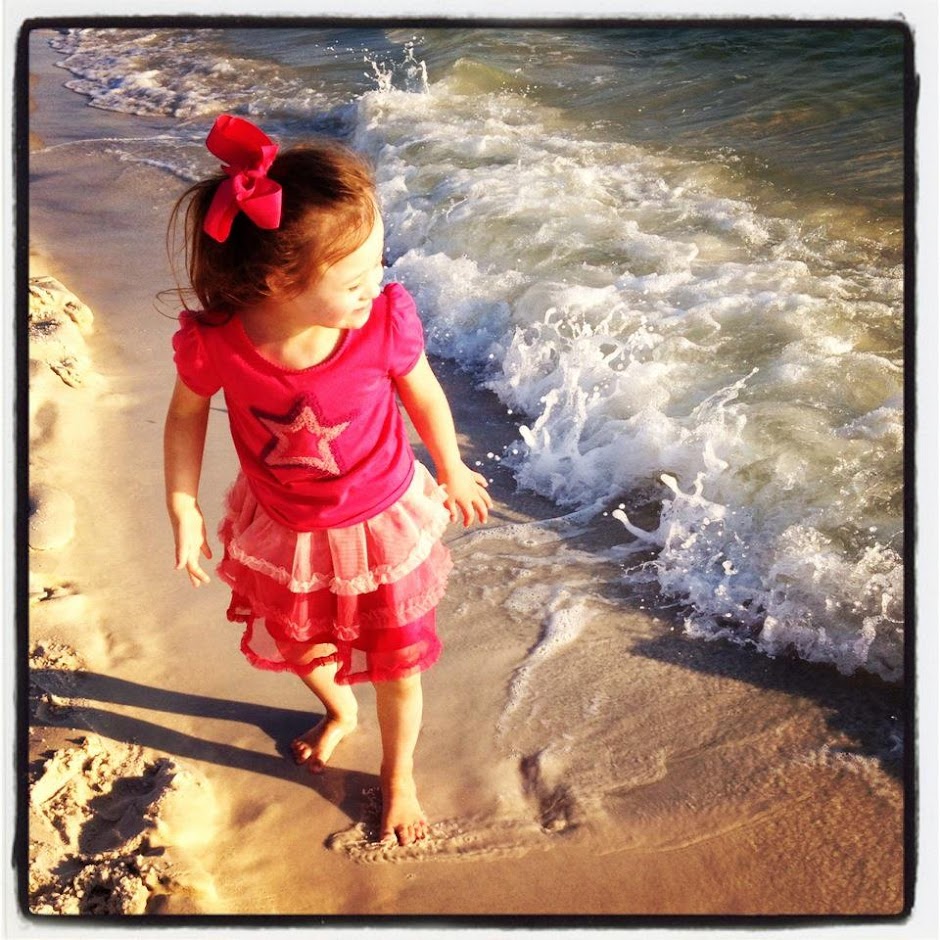"Do you ever wish....."
The question went something like this:
"Do you ever wish... you were like other women your age? That you could enjoy the freedom to go out and meet friends for a day of shopping or to meet them for coffee whenever you wanted to? or to travel to other countries? or go to regular church like everyone else? or to just go to a restaurant without having to worry about Hope and Charlie having a sensory meltdown?"
It was an honest question and a good one, so I paused to consider it. But my silence, although brief, was too much for this teenager who instantly kicked into guilt mode:
"Mom, you know I'm not saying I would change Hope and Charlie, don't you?....I love them exactly the way they are....I was just wondering how YOU FEEL sometimes. If you ever wish you could just be YOU instead of being Hope and Charlie's CARETAKER. Is it OK for me to ask a question like that? I feel bad for asking it now."
Isn't it funny how human nature forces us to tip-toe around certain subjects even in our own families?
"No," I answered, "please don't feel bad about asking the question...I was just thinking about how I wanted to answer it."
Do I sometimes wish little bodies were SITTING ON my chairs instead of STANDING in them?
That those same little bodies were USING the potty instead of PLAYING in it?
That they would simply LIE DOWN in their beds instead of playing BENEATH them?
EAT from tables and not SIT ON them?
Do I sometimes wish I didn't have a child who has a SERIOUS HEART CONDITION?
And do I ever long for children who don't enjoy PAINTING THEIR BODIES in dirt, mud, or mulch on a daily basis?
Do I wonder what it would be like if a certain boy didn't enjoy HANGING from precarious places....
LEAVING a marked trail behind him wherever he goes....
And ALWAYS FINDING SOMETHING to get into?
"Before Hope and Charlie, I was a different person. But once they came along, I believe the Lord gave my heart a complete overhaul. He changed the way I think and feel, my wants and my desires, and He even turned my dreams around. Don't ever worry about me, because I have no desire to do anything more or different with my life, and I can honestly say I have never resented a single moment. Not ever. And THAT is God."
I paused again to bring the conversation back around to the one who had asked the question:
"But do you know what is most amazing?" I asked, enjoying the full attention of a wide-eyed child who is fast becoming all grown up, "I get a glimpse of Jesus every day because I get to see the truest, most perfect love played out for me as I watch YOU selflessly love your brother and sister. And it never ceases to blow me away."
This is a few seconds of 15 year old Lydia, unknowingly caught by me on camera, displaying exactly what I'm referring to:
What I realized, when I took those few moments to consider the question, is that I actually believe I am one of the most fortunate people in the world. Each day of my life is an adventure, promising to present at least a challenge or two. I get to laugh, cry, scream, and celebrate multiple times throughout every day. Life is never boring. And even more remarkable than that, my love is reciprocated unconditionally and I am always needed.
Do I ever wish? The answer is NO!
1st Corinthians 12: "Love is patient and kind; does not envy or boast; is not arrogant or rude; does not insist on it own way; is not irritable or resentful....Love bears all things, believes all things, hopes all things, endures all things....Love never fails!"










